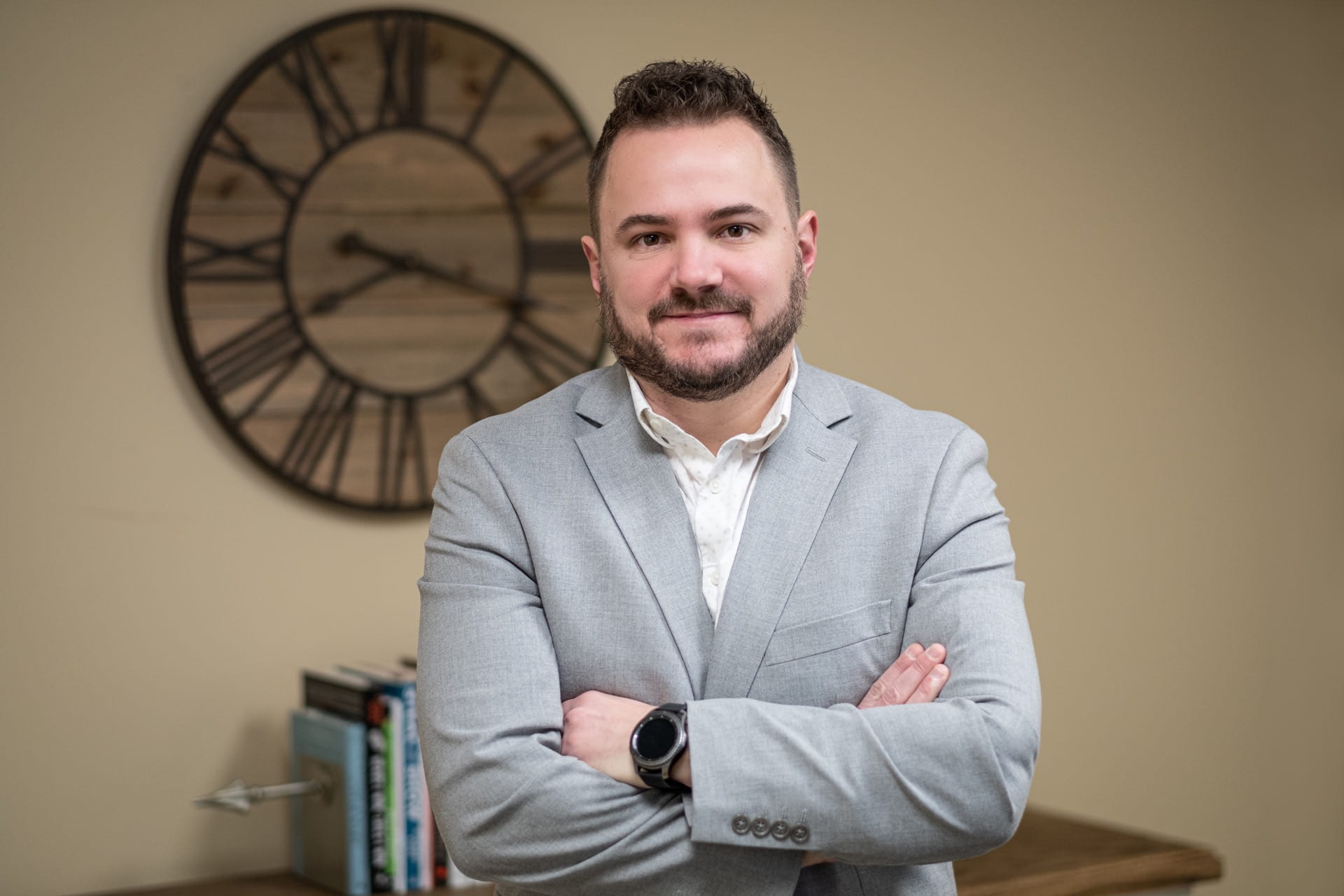It’s the resilient who pick themselves up and start all over again. Eric Friedland is notable in that regard—he’s picked himself up a few times and started all over again—even after being successful. His current professional re-incarnation is as a financial advisor at Edward Jones. A position, he admits, that he’s just getting started at. “I’ve been here for two years which is not a long time in this industry. The first five is like drinking from a fire hose.”
The good thing is that Friedland has always had a healthy thirst for knowledge and a sense of humor. On his LinkedIn profile after “Financial Advisor,” he describes himself as | “Old” Millennial | Problem Solver | Optimist | Dad Joke Connoisseur | Marketer | Relentlessly Curious | Empathetic Listener | Dress Pants or Sweatpants Kind-of-Guy.
From that description, you might assume that Friedland found his businesses classes as an undergraduate at UW-Green Bay a bit dry, but he didn’t. Mainly because he didn’t take many. “I graduated in 2011 with a bachelor’s degree in history and humanities.” (A degree eight years in the earning, but more on that later.)
For Friedland, mixing the humanities with the world of finance, turns out not to be a problem. “I know people that are in finance from all walks of life. And I think there’s a misconception out there that you’ll always get a job in your major.”
(The New York Federal Reserve Bank would agree, having completed a study in 2019 that revealed only about 27% of college grads end up working in the field of their major.) And one quote from the study that has certainly applied to Friedland—
“Not surprisingly, the typical path is more of a swirl than a straight line.”
There have been a few twists and turns along the way—like working for seven years at Associated Bank, but not as a banker—but in the murky realm of risk management. First, as a financial crimes investigator, which lead ultimately to being promoted to vice president in corporate risk analysts. He enjoyed the work but found it a bit solitary and often depressing. What wasn’t depressing was that the bank financed his graduate degree which helped him to land his current position in finance.
So how did a history and humanities grad land in a bank? He wrote his way into the job.
“History is all about writing.” And investigating financial crimes required creating a convincing narrative in both words and numbers. And as far as numbers, he had a head for those too. An interesting diversion along his swirling path was earning an associates degree in accounting between his two stints as a UW-Green Bag undergrad. His first attempt was decidedly underwhelming.
“I graduated from high school in 2003, went right to GB, and ended up dropping out in my second year. Now I’m a big proponent of if you’re not ready to go to college, don’t go.”
By 2011, it was time to go—back to college—completing the rest of his undergraduate degree in just one year. And this time he wasn’t stopping.
Six months after starting at Associated Bank he was eligible for graduate school tuition reimbursement and completed his master’s degree in management in just two years with a 3.8 grade average. The biggest surprise for Friedland wasn’t that he didn’t need a history of business classes for the master’s degree program, but that his history degree continued to serve him well. Plus, in graduate school, it’s as much about who you meet as what you learn.
“It’s a program that’s really about leadership,” Friedland concludes. And what is history if not stories about leaders? He also offers this advice to anyone considering any graduate school program—it’s not just about the classes or the grades, but appreciating the experience.
“You’re going learn so much from other people, the program, and put yourself in a better position to succeed later on.”
Add that add the notion that all who are wandering, may not be lost. And even if you’re swirling, that doesn’t mean you’re sinking.
Story be Michael Shaw; Photo by Dan Moore


